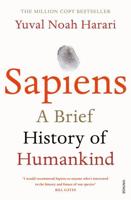Publisher's Synopsis
Taking us to the heart of the Enlightenment via the stomach, Daniel Cottom argues that the period was from the beginning obsessed with guts and disgust as much as it was with mind and reason. In this analysis Cottom traces how human flesh became a new thing in the Enlightenment - a flesh of sensibility, a surface of stimuli that at once inspired and disturbed artists and philosophers. Examining paintings, digestion, machines, spa waters and kissing as cultural forms, and interweaving these examinations with readings of literary and philosophical texts, Cottom locates a new focus on the inner workings of the body, a "visceral turn" in Enlightenment thinking. The most radical image of this visceral turn appeared in the figure of the cannibal - a figure who, in popular imagination, bore a striking resemblance to the image of the philosopher.;Cottom looks into the anatomy of the age by way of the dissected rayfish in Jean Simeon Chardin's famous still life, "The Ray", and the mechanical guts of Jacques de Vaucanson's duck, a robotic sculpture that appeared to both eat and digest food. He then provides a detailed analysis of the spa at Bath during the time of Beau Nash, when "taking the waters" engaged complex scientific, aesthetic and social issues. Examining depictions of cannibalism from Montaigne to the Marquis de Sade to Hegel, with special attention to the voyages of Captain James Cook and Defoe's "Robinson Crusoe", Cottom shows how the cannibal came to be merchandised as an object of consumption - and how the philosopher came to be the cannibal's apologist. The book concludes with an analysis of the kiss, particularly Thomas De Quincey's portrayal of the deathbed kisses of Immanuel Kant and Admiral Horatio Nelson.












